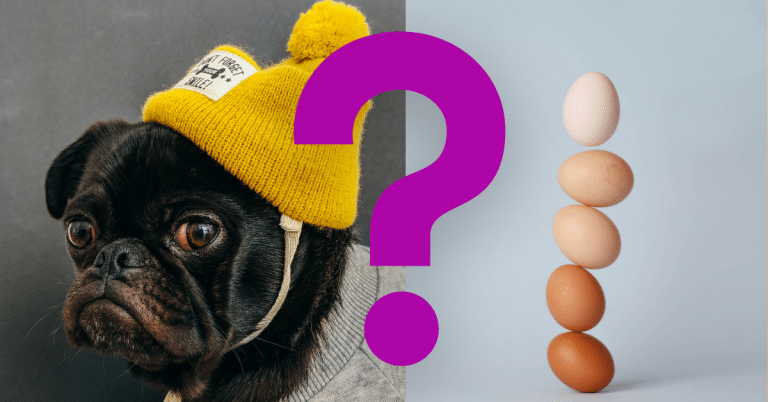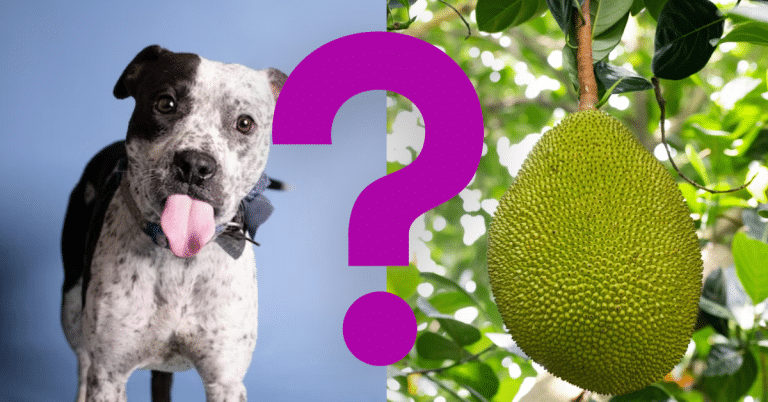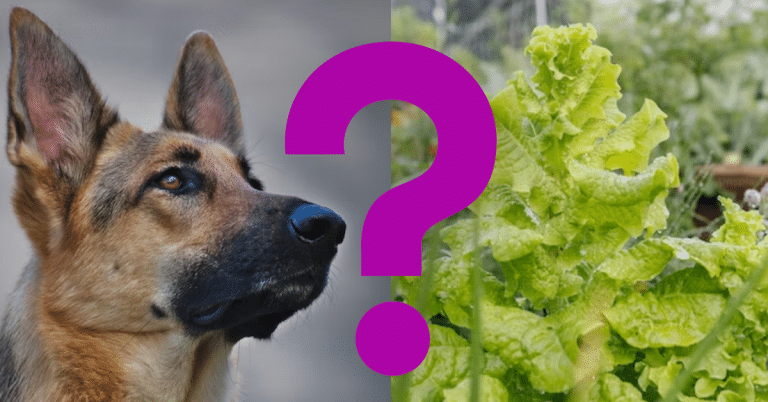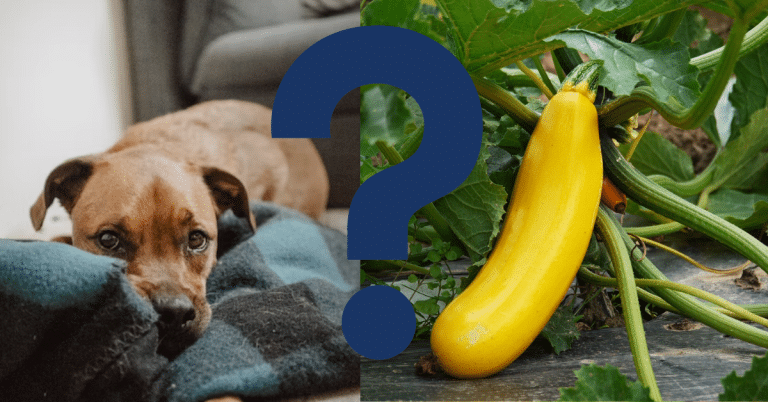Can Dogs Eat Croutons? A Vet’s Summary
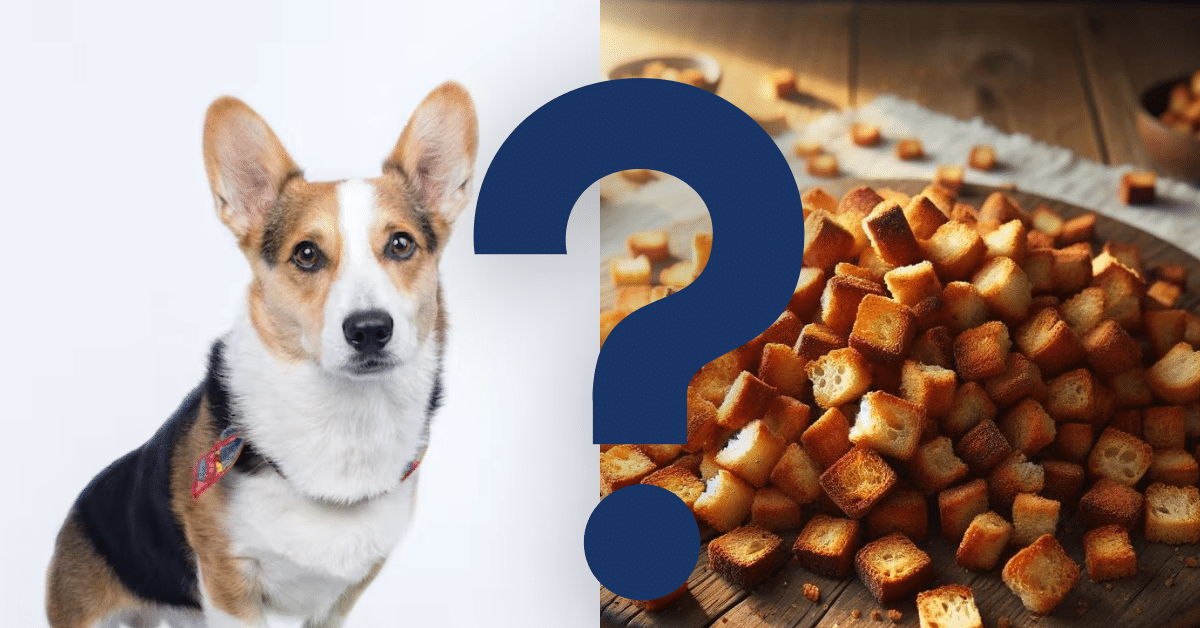
Croutons are high in fat, but can dogs eat croutons?
While a modest quantity of plain croutons is unlikely to hurt most dogs, it is generally not advised to feed dogs foods heavy in salt or spices, since these can be damaging to their health. Many seasoned commercial croutons contain garlic, onions, or other components that might be hazardous to dogs.
Let’s dive in:
Benefits of Croutons for dogs
While croutons are not a required or highly helpful element of a dog’s diet, they may provide a few modest benefits in specific circumstances:
- Texture & Enrichment: Some dogs prefer crunchy textures, and giving them a tiny, plain crouton every now and then may be a good approach to give them a different texture in their diet.
- Plain croutons can be used as a low-calorie training reward for dogs in very tiny amounts. It is critical, however, to verify that the croutons are devoid of flavors and substances that may be detrimental to dogs.
- Increasing Diversity: Dogs, like people, may benefit from a bit more diversity in their food. To avoid potential health difficulties, any modifications to their diet should be made in moderation and with attention to the components.
While plain, unsalted croutons may be regarded safe in very tiny amounts for certain dogs, they do not provide considerable nutritional advantages. If you want to give your dog treats or snacks, it’s typically best to pick products that have been particularly made for dogs and have been approved by veterinarians to guarantee they fit your dog’s nutritional needs and pose no health hazards. Before introducing new foods into your dog’s diet, always contact your veterinarian, especially if they have any current health issues.

How to safely give croutons to dogs?
If you wish to give your dog a tiny bit of croutons, do so with caution and regard for their health. Here are some guidelines for providing croutons to dogs safely:
- Plain And Unseasoned: Only give your dog plain, unseasoned croutons. Croutons flavored with garlic, onions, herbs, or other flavors are not recommended for dogs.
- Small Portions: Keep your dog’s croutons at a minimum. Croutons should be used as a little, occasional treat rather than as a regular element of their diet. Too many might lead to an imbalanced diet and serious health problems.
- Size Matters: To avoid choking dangers, break the croutons into smaller, bite-sized pieces, especially for smaller dogs.
- Monitor For Responses: When introducing new foods into your dog’s diet, keep an eye out for any negative responses. Stop giving them croutons if you observe any indications of stomach problems, such as vomiting or diarrhea.
- Talk Your Veterinarian: It’s always a good idea to talk with your veterinarian before adding any new treats or foods to your dog’s diet. They can offer advice based on your dog’s individual health and dietary demands.
While it is feasible to give some dogs modest amounts of plain croutons without causing harm, they are not nutritionally essential, and there are better treat choices available. When deciding on a diet and treats for your dog, always consider their general health and well-being.
Will croutons make a dog sick?
Small amounts of plain, unseasoned croutons are unlikely to make a dog sick. However, a few considerations must be considered:
- Quantity: Moderation is essential. Allowing your dog to consume an excessive number of croutons daily might cause stomach distress, including vomiting and diarrhea.
- Seasonings: If the croutons are seasoned with garlic, onions, or other herbs, they may be toxic to your dog. These substances are poisonous to dogs and can cause a variety of health concerns, including gastrointestinal discomfort and, in rare circumstances, more serious disorders.
- Individual Sensitivity: Because every dog is unique, individual sensitivities to specific foods vary. Some dogs’ stomachs are more sensitive than others, and they may react poorly to even little stimuli.
- Whole croutons may represent a choking hazard, especially to tiny dogs. This danger can be reduced by dividing them into smaller, more manageable portions.
If you’re thinking about giving your dog croutons, err on the side of caution. Begin with a modest dose and monitor your dog for any negative responses. If you observe any symptoms of intestinal trouble or strange behavior, it’s best to stop providing them with croutons.
Consult your veterinarian before introducing any new items into your dog’s diet if they have any pre-existing health concerns. Furthermore, if you feel your dog has consumed a big number of croutons or croutons laced with dangerous spices, seek veterinarian assistance immediately.

A Vet’s Summary
Croutons are normally not recommended for feeding to dogs, especially if they are seasoned or contain components such as garlic or onions, which can be hazardous to dogs. While plain, unseasoned croutons in modest amounts may not be harmful to all dogs, they provide little nutritional value and can contribute to an imbalanced diet.
A veterinary may advise against providing croutons to dogs for the following reasons:
- Croutons are not a high-nutritional-value meal for dogs. Dogs have distinct nutritional demands, and it is critical to give them balanced nutrition through a diet designed just for them.
- Digestive Distress: Because some dogs have sensitive stomachs, introducing new or unfamiliar meals can cause digestive distress, including vomiting.
- Seasonings often found in croutons, such as garlic or onions, can be harmful to dogs and cause major health problems.
- Croutons contain a lot of calories and giving them to your dog daily can lead to weight gain and obesity.
Probiotics are often used to treat digestive disorders including diarrhea and constipation, as well as to support a healthy gut microbiota. They can also help dogs with certain medical disorders, such as inflammatory bowel disease or after a course of antibiotics.
It’s always better to check with your veterinarian if you have any concerns or questions regarding your dog’s nutrition, treats, or specific foods. They may offer tailored advice based on your dog’s age, breed, health status, and particular requirements. Always seek the advice of a veterinarian to protect your dog’s general health and well-being.
Videos to watch
If you are wondering whether dogs can eat crouton, watch this:
If you are wondering whether croutons are good for dogs, watch this:


